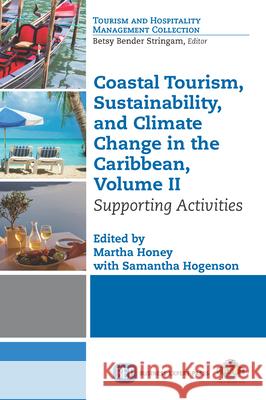Coastal Tourism, Sustainability, and Climate Change in the Caribbean, Volume II: Supporting Activities » książka
Coastal Tourism, Sustainability, and Climate Change in the Caribbean, Volume II: Supporting Activities
ISBN-13: 9781631574832 / Angielski / Miękka / 2017 / 188 str.
Coastal and marine tourism are the fastest growing sectors of the tourism industry. Beaches and coastlines are being rapidly bought up and built up, while the number, size and ports-of-call of cruise ships is growing rapidly. Nowhere is the more apparent than in the Caribbean, the most tourism dependent region in the world. Some 20 million cruise passengers and another 22 million overnight resort tourists - most from the United States -- vacation in the Caribbean each year. These forms of large-scale, mass market, sun-and-sand tourism are causing a range of environmental and social problems, while often bringing few benefits to the host communities. In recent years, these island nations have also become some of the most vulnerable places to climate change, including sea level rise and warming, coral and mangrove destruction, increasingly fierce and erratic storms, a host of other human-included phenomena. As an industry, tourism both contributes to and is a victim of climate change. Tourism cannot continue to pursue business as usual. These two interconnected volumes are organized around a central theme: How coastal and marine tourism must be sustainably planned, built, and operated in this era of climate change. The primary audience is the tourism industry, both individual businesses and associations, especially those connected with coastal and marine tourism but also anyone with interests in sustainable practices. In addition, the market for this publication will include university courses in areas such as tourism planning and management, sustainability, climate change, and economic development. We expect that the volume will also interest government planners, international development and financing agencies, NGOs, and others involved in or interested in the nexus of tourism and climate change. We propose that it be co-published by Business Expert Press and the Center for Responsible Travel. Given length guidelines, we are proposing that BEP and CREST co-publish two connected but standalone volumes, one focusing on coastal tourism and the other on marine tourism. We also envision that CREST may publish a combined single volume, with additional materials, through another publisher or self-published at a future date.











